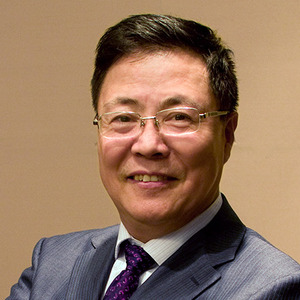
Ningli Wang
Power List Profile
Professor of Ophthalmology, Beijing Tongren Eye Center, Beijing Tongren Hospital, Capital Medical University, Beijing, China
If you weren’t an ophthalmologist, what would you be doing instead?
I’d like to think my career path would be more closely aligned with various conscious art practices – such as painting and writing. I’m actually working on a science fiction novel right now about a world without lies.
How do you think AI and machine learning will impact ophthalmology?
The future development of AI, telemedicine, and digital medicine will eventually form intelligent ophthalmology. Currently, several countries and regions are leading the charge in establishing comprehensive digital and intelligent hospitals. And though it is in its early stages, this effort is expected to gain momentum as technology continues to evolve and mature.
Moreover, optical coherence tomography (OCT) has revolutionized ophthalmic diagnostics by enabling detailed examination of ocular tissue structures. Looking ahead, we anticipate achieving cellular-level resolution through OCT technology. The upcoming "OCT+X" technologies, such as OCT combined with adaptive optics, Doppler imaging, and terahertz imaging, will push ophthalmic imaging to unprecedented levels of precision.
